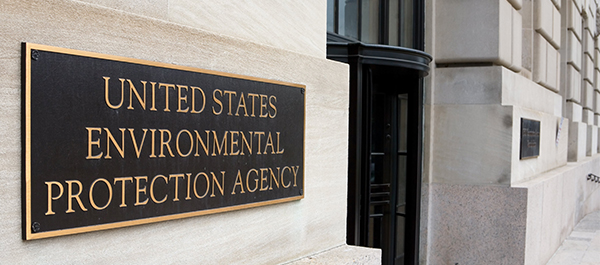NACWA Submits Input on EPA’s Regulatory Reform Initiative

In response to EPA’s request for input under the Trump Administration’s regulatory reform initiative, NACWA submitted a list of Clean Water Act (CWA) and related environmental regulations and policies needing improvement, on May 15. NACWA’s comments provided a few examples of duplicative and unnecessary regulations for repeal, but most of NACWA’s input focused on broader issues that encompass more than one regulation, and which, in some circumstances, may require congressional action to ultimately address. Given the complexity of the issues facing the clean water community, NACWA has already initiated more targeted conversations with EPA staff to explore some of the recommended actions included in its formal submittal.
Many suggestions in NACWA’s comments are improvements that the Association has been discussing with EPA for many years under both Democratic and Republican administrations, and reflect common sense, non-partisan ideas to improve the effectiveness of the CWA. In its letter to EPA, NACWA stresses that the Association’s suggestions are focused on making the existing CWA regulatory structure work more effectively for utilities and their ratepayers, with a focus on achieving net environmental benefit results that will further protect public health and the environment.
NACWA’s comments note that EPA must continue to expand its collaboration and partnership with the clean water community, which began to improve with the Obama Administration’s Integrated Planning Framework. Rather than pursuing an enforcement-first approach with utilities, EPA should instead focus on compliance assistance and only resort to enforcement in extreme cases. NACWA also highlighted that while the “Utility of the Future” initiative embodies the spirit of innovation and efforts to go beyond simply complying with the CWA, it also seeks to remove hurdles to utility innovation, and to ensure that utilities can most effectively serve their communities and ratepayers by ensuring the best environmental and public health return for each ratepayer dollar invested. In other words, regulatory reform is not simply about removing unnecessary or duplicative regulations, it is also about interpreting or changing existing rules and regulations to improve them and ensure greater consistency and more efficient implementation.
EPA’s next steps, in terms of addressing the thousands of suggestions it received during the formal comment process, are unclear. Regardless, NACWA will continue ongoing discussions with EPA on the Association’s priority areas for improvement.